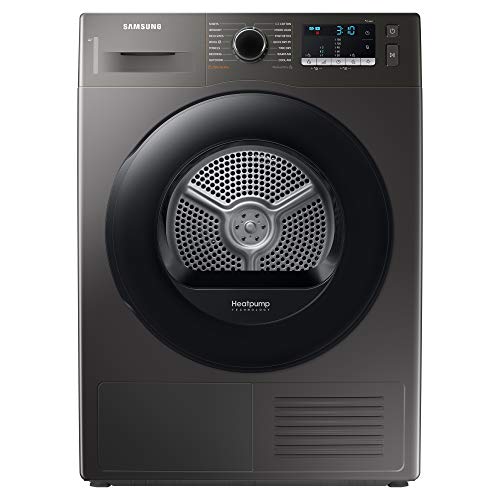The Advantages of Heat Pump Technology
If it is running on clean electricity, a heat pump system can cut the carbon emissions of heating homes by 75 percent, when compared with a gas-powered heater.
Zhibin Yu was able to do some serious work during the Covid-19 Lockdown. He worked on improving a heat pump design for colder climates.
What is a heat pump?
A heat pump is a HVAC system that makes use of electricity to provide both cooling and heating. It uses a system very like that of a refrigerator or air conditioner. It evaporates liquid refrigerant which absorbs heat, as well as the surrounding air. The heat is then transferred inside through a series of metal coils and a fan. Heat pumps use much less energy than furnaces, boilers or electric radiators to create heat because they extract their thermal energy from the air and the ground, rather than creating it through combustion or electrical resistance.
A heat pump functions as an air conditioner operating in cooling mode, absorbing heat from the outdoor air even when it's cold, and transferring it inside. However, it also functions as a heater in the winter when an inverse valve reverses the flow of refrigerant changing it back to its liquid state and evaporating it. The heat is then dragged inside via a fan, and the copper tubes in the indoor unit.
Heat pumps are more efficient than furnaces and boilers as they produce up to three times the amount of heat. They can be used to heat your entire home or a single space such as garages or attics.
A variety of innovations are making heat pumps more efficient. They include variable speed compressors that operate at close to full capacity all the time, instead of continuously cycling on and off, and scroll compressors that are more quiet and efficient than traditional compressors. Other features that increase efficiency include a desuperheater, which heats water by using the refrigerant that is used up. Zone control systems also provide heating for specific rooms in the house.
The fact that heat pumps can be powered by renewable energy sources is their most important innovation. This reduces the environmental impact of the pumps, since they do not use fossil fuels to power them. They also use low-global warming-potential (GWP) which is more beneficial for the environment as opposed to R-410A or other hydrocarbons.
What is the function of a heatpump?
Heating pumps can be used to cool and heat your home. It uses less energy than traditional electric or gas systems, making it a green alternative. It also requires less maintenance than conventional systems.
The technology behind the Heat Pump is comparable to the air conditioner. The system consists of two main parts including an outdoor unit which is similar to the outside unit of a split air conditioning system and an indoor unit that has a coil which could be used as an evaporator or condenser. The system contains a fan which is able to blow air across the coil to aid in the transfer of heat. The refrigerant inside the coil is liquid at room temperature, but when it becomes hot inside the house, it turns into a gas. A reversing valance close to the compressor is able to switch the direction of refrigerant flow to cooling and heating mode.
Because heat naturally moves to areas of lower temperatures and lower pressure the vapor refrigerant inside the coil absorbs the warmth from the air in your home. Then, it goes to the outdoor unit, where the compressor increases the pressure and temperature. The boiling point of liquid drops and the liquid returns to its liquid state.
As the refrigerant liquid exits the compressor, it goes through an additional coil in the outdoor unit. This coil is called an evaporator in the event that the heat pump is heating, and a condenser if it is cooling. The outdoor coil makes use of series of aluminum fins that transfer heat from the air.
The fan on the evaporator of the indoor heat pump pushes air over the aluminum or copper coils. The coils are shaped with grooved surfaces inside to increase their surface area and aid in the transfer of heat. The fan keeps the air's velocity in a way that is comfortable and helps reduce drafts and noise. Some models come with the desuperheater, which collects heat from the evaporator while it is in cooling mode and makes use of that heat to efficiently heat water.
What are the advantages of the use of a heat pump?
In terms of saving energy and reducing the environmental impact, there's no HVAC system more eco-friendly than a heat pump. This eco-friendly technology is gaining traction as state and local governments continue to offer incentives and rebates for homeowners who choose to switch. The Department of Energy is touting their advantages over traditional heating systems.
As opposed to gas furnaces pumps make use of metal coils and fans to transfer thermal energy from the air. As they do not use fuel, unlike a combustion heater they don't emit any emissions or other harmful pollutants. They don't require an exhaust chimney to be vented out of the home. Heat pumps are also incredibly quiet. They operate at a fraction the volume of gas furnaces.
A new study conducted by UC Davis has found that the use of a heat pump that is powered by clean electricity (generated by wind, solar and other renewable sources) can cut down on household carbon dioxide emissions by up to 75%. The study however only looked at houses with superior insulation and a modern heat pump--not all households.
heat pump tumble dryer uk 's a good idea to know that heat pumps are able to be retrofitted to most existing homes. If you're thinking of making the switch and are looking for advice, we suggest contacting your local electric cooperative or public power district. They can provide contractors, financing and other details about this exciting new technology.
The environment you live in will determine the model that will work best for your home. You'll need to search for the ENERGY the STAR or a performance chart which includes the SEER rating as well as the HSPF rating. In warmer climates, you'll want to focus on SEER; in colder ones, look for HSPF.
They are not just environmentally friendly, but they have numerous other advantages. Because they don't burn fuel, they require less maintenance than a combustion-based furnace. Furthermore, there's no danger of carbon monoxide leaks, fires or explosion. The heat pump can also improve indoor air quality by increasing the humidity in winter and decreasing it in summer.
Lastly they don't generate any combustion byproducts, which means they don't release any combustible gases into the atmosphere. This makes them a safer choice for many homes that have vulnerable residents.
What are the drawbacks of a heat pump?

They are not different. They come with their own advantages and drawbacks. The main ones are efficiency in energy use and environmental friendliness. The heat pumps, unlike furnaces that burn fossil fuels to generate heat, utilize renewable energy sources to move thermal energy out of the air or the ground to your home. They are also more efficient than traditional heating systems and can reduce your electricity bills.
The cost of heat pumps is higher to purchase than furnaces however they pay for themselves over time through lower operating costs. They can be noisy, but new designs minimize this problem. They work best in homes with solid insulation and hermetic seals. They work best in climates that have moderate temperatures.
In the summer, they function similar to an air cooling system. They draw heat from your home's air and exhaust it outdoors by using a small amount of drive energy. In winter, they work in reverse, absorbing thermal energy from the air outside of your home and then transferring it to the inside.
This is made possible by the reversing valve that allows the refrigerant to move in any direction. The thermal energy that they transport can be derived from a number of sources, including geothermal energy stored in the earth as well as ambient air temperatures or waste heat generated by industrial processes.
Since they use significant amounts of electricity (or none in the case of wall heaters) they are typically subject to "time of use" pricing. This can increase the price of heat pumps. They also are less effective than furnaces in colder climates.
The refrigerants used in heat pumps could be released into the air and cause pollution. Although manufacturers are working on safer alternatives, they do pose a risk and should only be used when absolutely necessary. In general, however it is generally accepted that heat pumps are a greener alternative to traditional heating technologies and, with proper installation they can reduce your carbon footprint by a significant amount. Heat pumps are an excellent way to experience "green" living without having to invest in a large HVAC system.
